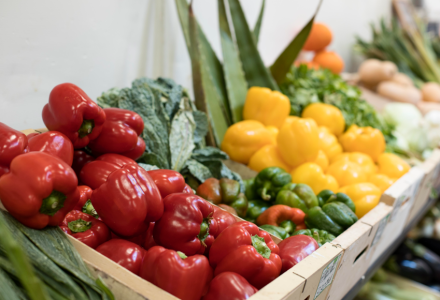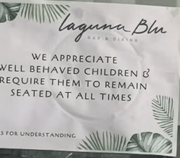These families saved hundreds of dollars on groceries for 50 years—here’s how they did it
In the bustling city of Sydney, a group of families has been quietly saving hundreds of dollars on their grocery bills for the past half-century.
Their secret? A simple yet effective strategy of pooling their resources to buy fresh produce in bulk.
This practice, which began in the 1970s, continues to thrive today—offering a viable alternative to the high prices of major supermarkets.
The concept is straightforward: each week, around a dozen families contribute $25 to a collective fund. This money is then used to purchase a box of fresh fruit and vegetables.
Angela Webster, a member of this cooperative for the past five years, shared: ‘I think if you bought that same thing at [the supermarket], the same amount of veggies and the same size box, you're probably spending $70 or $100.’

‘You get between 16 and 20 different items, and you might get a couple of kilos of each thing. I very rarely have to substitute with other fruit or vegetable throughout the week,’ Ms Webster added.
The cooperative, or co-op, is one of many across New South Wales (NSW) that leverage the power of collective buying to secure lower prices.
According to Economist Gigi Foster from the University of NSW, such market power models could be a viable solution for those dissatisfied with the pricing strategies of major supermarkets.
‘Customers can definitely get better prices which, of course, they're going to be more interested in doing given the cost of living has gone up so much,’ Foster pointed out.
‘I think community initiatives like this are the way of the future, as well as shopping around,’ she added.
The co-op operates on a rotating roster system. Each member takes a turn every 12 weeks to shop and divide the produce into boxes for collection.
The shopping trip involves an early start, a drive to the markets, and a careful selection of fresh produce.
‘When it's your turn to shop, you get up really early at about 5:30 in the morning, drive to Flemington markets, and we go in with our $300, and we walk around the market and buy big boxes of veggies,’ Webster shared.
While the produce may sometimes be 'seconds' or slightly imperfect, it is edible and significantly cheaper.
This approach not only saves money but also helps reduce food waste, a significant issue in Australia and globally.
However, traditional co-ops like this one often have a limit on the number of participants and require members to participate actively in the shopping process.
Technology offers a solution for those who can't or don't want to commit to this level of involvement.
An app called Box Divvy, co-founded by farmer Jayne Travers-Drape, connects consumers directly to farmers, allowing members to order online and share boxes of food bought at wholesale prices.
The app claims to be consistently 30 per cent cheaper than major supermarkets, offering significant savings for its users.
Travers-Drape stated: ‘Iceberg lettuce, for example, this week is at the supermarkets for about $4.50, but they're $2.50 on Box Divvy.’
The company operates on an order-ahead system, with most produce reaching the customer within 48 hours of being harvested.
This approach eliminates the need for costly food storage and minimises distribution costs.
The app also provides real-time updates on product prices, allowing customers to make informed decisions and compare prices easily.
‘We're very transparent about where their food comes from and how it's grown,’ Travers-Drape added.
Box Divvy has over 10,000 participants in NSW and the Australian Capital Territory (ACT).
The cost of groceries remains a significant burden for many Australians, with food inflation easing to 4.5 per cent in the fourth quarter of 2023, down from 4.9 per cent in September.
The prices of fresh produce have decreased by 0.2 per cent compared to 12 months ago.
Community-led initiatives like co-ops and apps like Box Divvy offer a way for consumers to take control of their grocery spending and challenge the market power of major supermarkets.
According to a recent report by the former chair of the Australian Competition and Consumer Commission (ACCC), the increasing prices are not solely due to inflation, but they are frequently the result of corporate greed, overcharging, and ‘profit pushing’ by companies with excessive market power.
As Foster noted, the more consumers turn to alternative suppliers, the more pressure big supermarkets will feel to lower their prices.
‘At a community level, people are starting to rely on each other rather than rely on the big organisations like the government or a big company to suit their needs,’ she continued.
‘I expect to see much more of that in the future, not just in groceries but in other goods and services, too.’
So, if you want to save on your grocery bills, why not consider joining a local co-op or trying out an app like Box Divvy? It could be the key to unlocking significant savings and enjoying fresher, cheaper produce.

What are your thoughts on collective buying, members? Have you ever been part of a co-op or used an app like Box Divvy? Share your experiences and tips in the comments below.
Their secret? A simple yet effective strategy of pooling their resources to buy fresh produce in bulk.
This practice, which began in the 1970s, continues to thrive today—offering a viable alternative to the high prices of major supermarkets.
The concept is straightforward: each week, around a dozen families contribute $25 to a collective fund. This money is then used to purchase a box of fresh fruit and vegetables.
Angela Webster, a member of this cooperative for the past five years, shared: ‘I think if you bought that same thing at [the supermarket], the same amount of veggies and the same size box, you're probably spending $70 or $100.’

Around a dozen families in Sydney pool their money to buy fresh produce in bulk. Image source: Freepik
‘You get between 16 and 20 different items, and you might get a couple of kilos of each thing. I very rarely have to substitute with other fruit or vegetable throughout the week,’ Ms Webster added.
The cooperative, or co-op, is one of many across New South Wales (NSW) that leverage the power of collective buying to secure lower prices.
According to Economist Gigi Foster from the University of NSW, such market power models could be a viable solution for those dissatisfied with the pricing strategies of major supermarkets.
‘Customers can definitely get better prices which, of course, they're going to be more interested in doing given the cost of living has gone up so much,’ Foster pointed out.
‘I think community initiatives like this are the way of the future, as well as shopping around,’ she added.
The co-op operates on a rotating roster system. Each member takes a turn every 12 weeks to shop and divide the produce into boxes for collection.
The shopping trip involves an early start, a drive to the markets, and a careful selection of fresh produce.
‘When it's your turn to shop, you get up really early at about 5:30 in the morning, drive to Flemington markets, and we go in with our $300, and we walk around the market and buy big boxes of veggies,’ Webster shared.
While the produce may sometimes be 'seconds' or slightly imperfect, it is edible and significantly cheaper.
This approach not only saves money but also helps reduce food waste, a significant issue in Australia and globally.
However, traditional co-ops like this one often have a limit on the number of participants and require members to participate actively in the shopping process.
Technology offers a solution for those who can't or don't want to commit to this level of involvement.
An app called Box Divvy, co-founded by farmer Jayne Travers-Drape, connects consumers directly to farmers, allowing members to order online and share boxes of food bought at wholesale prices.
The app claims to be consistently 30 per cent cheaper than major supermarkets, offering significant savings for its users.
Travers-Drape stated: ‘Iceberg lettuce, for example, this week is at the supermarkets for about $4.50, but they're $2.50 on Box Divvy.’
The company operates on an order-ahead system, with most produce reaching the customer within 48 hours of being harvested.
This approach eliminates the need for costly food storage and minimises distribution costs.
The app also provides real-time updates on product prices, allowing customers to make informed decisions and compare prices easily.
‘We're very transparent about where their food comes from and how it's grown,’ Travers-Drape added.
Box Divvy has over 10,000 participants in NSW and the Australian Capital Territory (ACT).
The cost of groceries remains a significant burden for many Australians, with food inflation easing to 4.5 per cent in the fourth quarter of 2023, down from 4.9 per cent in September.
The prices of fresh produce have decreased by 0.2 per cent compared to 12 months ago.
Community-led initiatives like co-ops and apps like Box Divvy offer a way for consumers to take control of their grocery spending and challenge the market power of major supermarkets.
According to a recent report by the former chair of the Australian Competition and Consumer Commission (ACCC), the increasing prices are not solely due to inflation, but they are frequently the result of corporate greed, overcharging, and ‘profit pushing’ by companies with excessive market power.
As Foster noted, the more consumers turn to alternative suppliers, the more pressure big supermarkets will feel to lower their prices.
‘At a community level, people are starting to rely on each other rather than rely on the big organisations like the government or a big company to suit their needs,’ she continued.
‘I expect to see much more of that in the future, not just in groceries but in other goods and services, too.’
So, if you want to save on your grocery bills, why not consider joining a local co-op or trying out an app like Box Divvy? It could be the key to unlocking significant savings and enjoying fresher, cheaper produce.
Key Takeaways
- A group of families in Sydney has been successfully pooling their money for 50 years to buy fresh produce in bulk, saving them hundreds of dollars compared to supermarket prices.
- Food co-ops like this can give consumers more bargaining power and provide better prices, which is especially important given the rising cost of living.
- An app called Box Divvy offers an alternative to traditional co-ops, connecting consumers directly to farmers and providing food at wholesale prices, which can be up to 30 per cent cheaper than major supermarkets.
- Community-led initiatives like food co-ops are expected to grow as consumers seek alternatives to traditional supermarkets and suppliers, aiming to lower their food costs and become less reliant on large corporations.
What are your thoughts on collective buying, members? Have you ever been part of a co-op or used an app like Box Divvy? Share your experiences and tips in the comments below.







